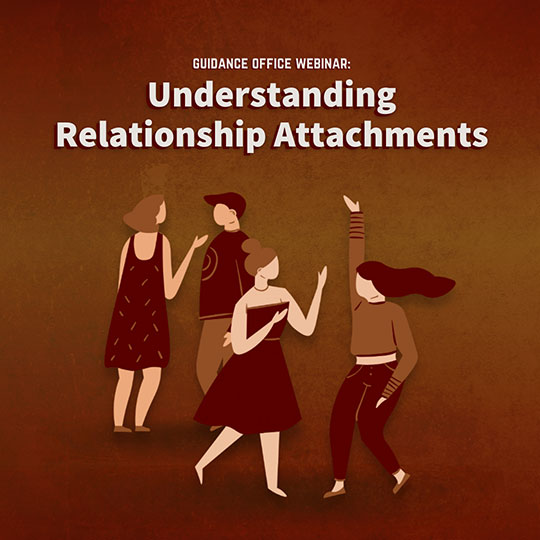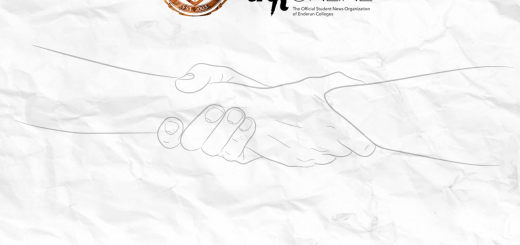Relationship Attachments: Your Body, Mind, and Soul

Truly, no man is an island—we all get involved in relationships no matter what. As part of Enderun’s Student Life Week, Sir James Franco, one of Enderun’s guidance counselors and professors, elaborates on the dimensions of how we act and get attached to the relationships in our lives.
The webinar started with an ice-breaker simulation of the popular dating app—Tinder. Attendees “swiped” left and right in the chat box as pretty faces and profile descriptions were flashed on the screen. Four profiles were shown: Felix, Denise, Prince, and Sara. Everyone had mixed opinions—and later on, everyone comes to realize and see themselves amongst the four bachelor and bachelorettes.
After the swiping and exchange of insights between the speaker and the audience, Mr. Franco reveals that each of these profiles represents an attachment style. Thus, the main characters for the talk were further personified— Fearful Felix, Dismissive Denise, Preoccupied Prince, and Secure Sara.
The Attachment Styles
This led the talk to the introduction of the Attachment Styles—the theory, the combinations, and how they manifest in present relationships. Sir James introduces the theory of attachment as a reaction that stems from one’s relationship with their parents and family from the past. It builds to who they are as a person now, and how they deal with their present interactions.
Discussing how attachment styles affect us as people, Mr. Franco then introduced the concepts of Avoidance and Anxiety. Avoidance demonstrates the distance we keep from relationships. One might express longing, for example, but avoid making connections. Anxiety reflects our self-confidence and how we view our worth. These two concepts make up different attachment styles:
- Fearful Felix – High Avoidance, High Anxiety
- Dismissive Denise – High Avoidance, Low Anxiety
- Preoccupied Prince – Low Avoidance, High Anxiety
- Secure Sara – Low Avoidance, Low Anxiety
“It’s not as if these are personality faults, or a sin, or a defect; it’s truly not. But the key here is that you should know where you are in these attachment styles so that you would know how to deal with it,” says Sir James.
He then continues that in another perspective, attachment styles can be defined with the person’s current relationships and how they view themselves. While the past may have shaped the personality, the effect it had today on one as a person is what matters more. He emphasizes that how you view yourself as worthy of love – a point of view from The Self.
“If you cannot give the love that you want to the people around you – and you don’t have it within you, you cannot pour from an empty cup.”
Towards the end, Sir James emphasizes taking care of one’s self. He asked the audience, “are you ready to fill your cup, first?” The majority responded in agreement. Taking care of your body, mind, and soul “fills your cup” and allows you to reflect and have a better view of your worth.
Other things that can help are creating worry lists, limiting what you know is bad for you (such as social media), eating healthy meals, limiting unhealthy foods, taking in some Vitamin D, breathing, and meditating. These are some of the things one needs to focus on to take care of their own body, mind, and soul.
Lastly, this wouldn’t be a James Franco-style lecture without the classic music and application. The event concludes with a guided meditation and the documenting zoom-fie (or Zoom selfie).
Circling back, no man truly is an island. The webinar helps us to understand why we might act as we do, not only in our romantic lives but also in our every day relationships and interactions with our peers. Another fruitful event thanks to Enderun’s Student Life Week!





